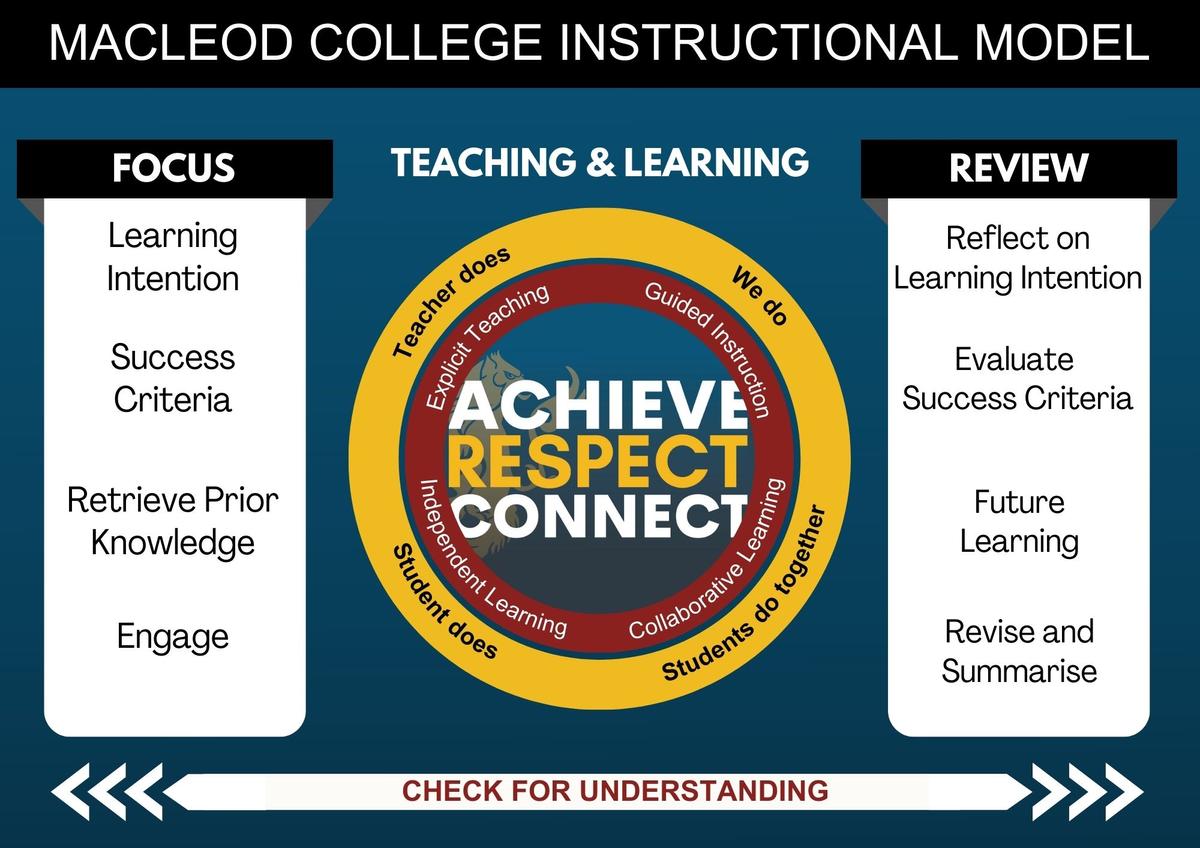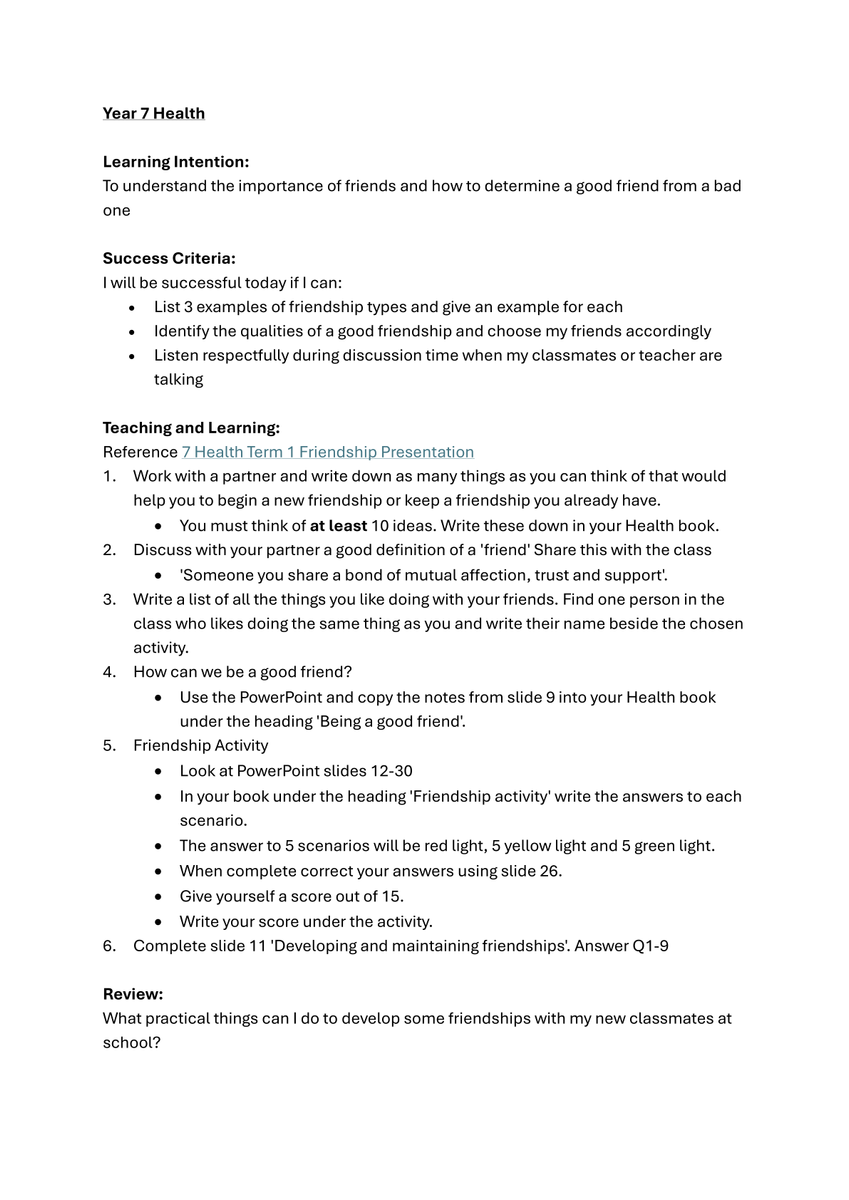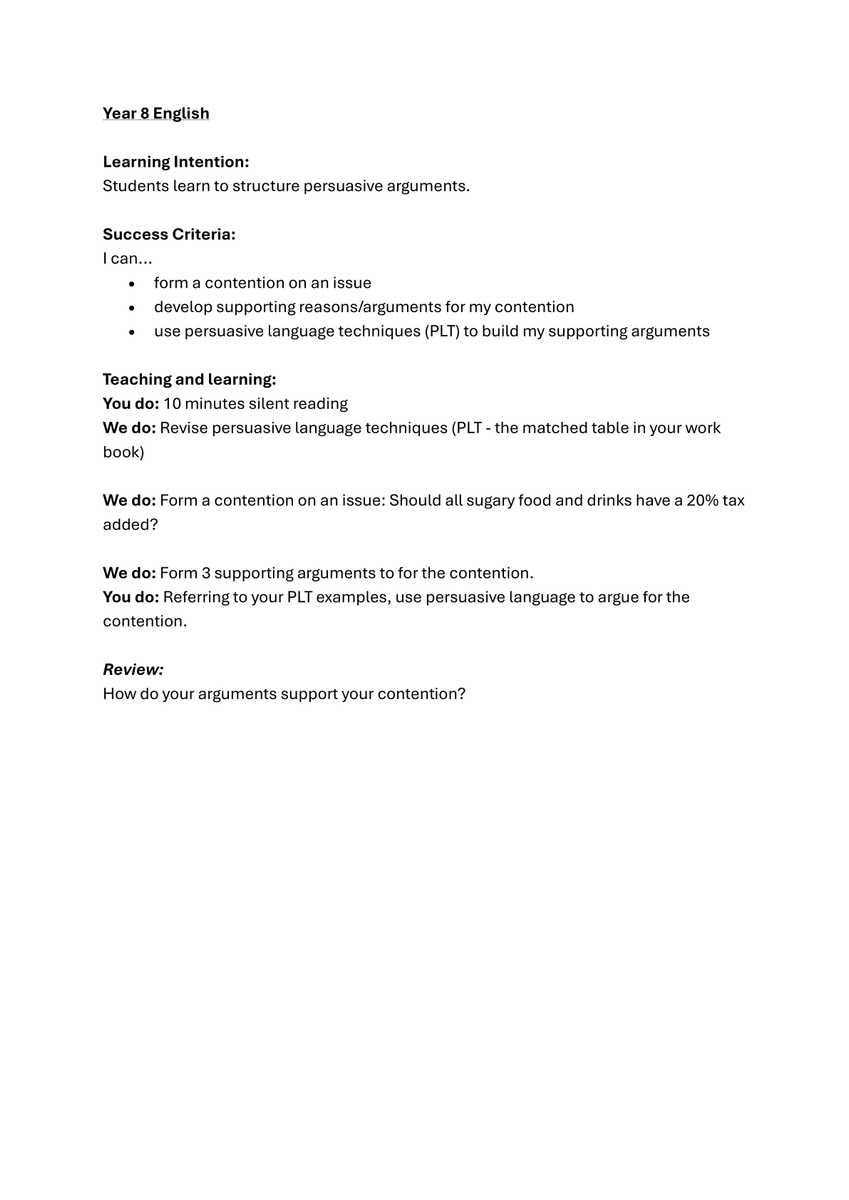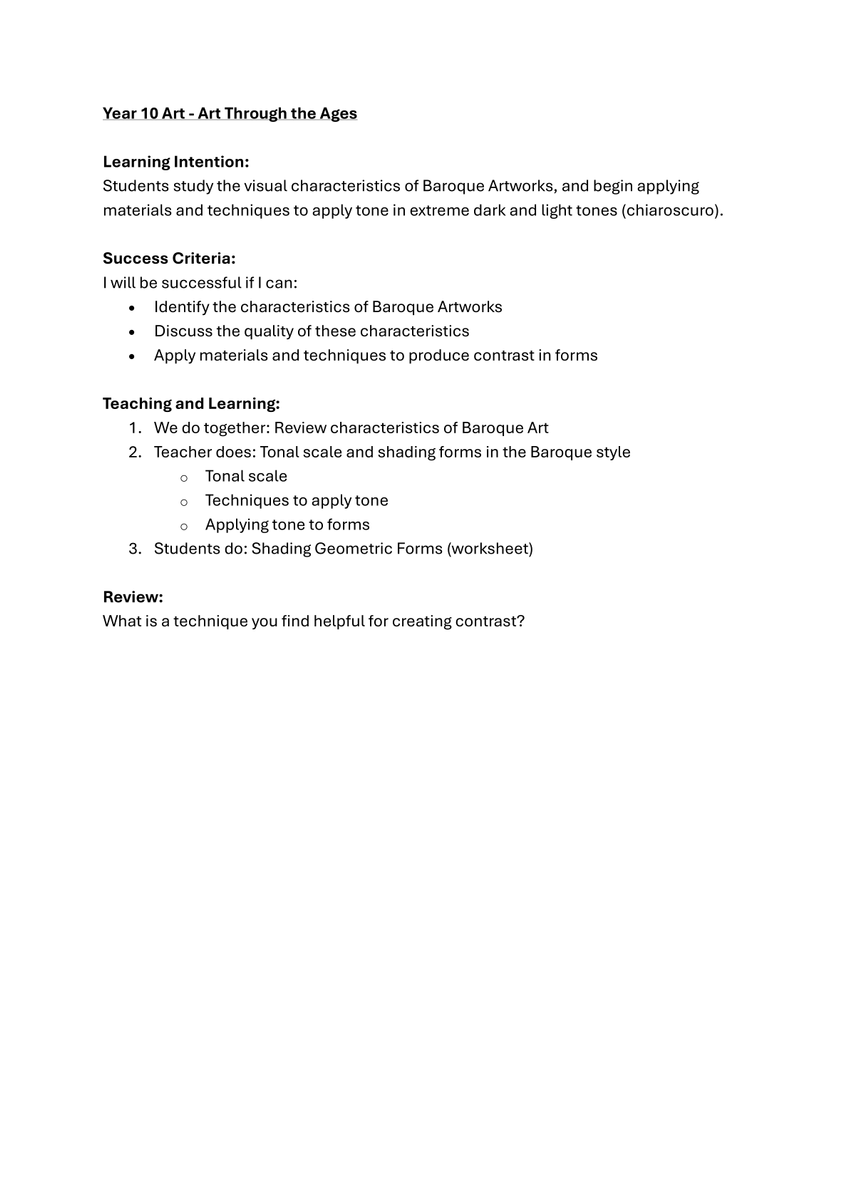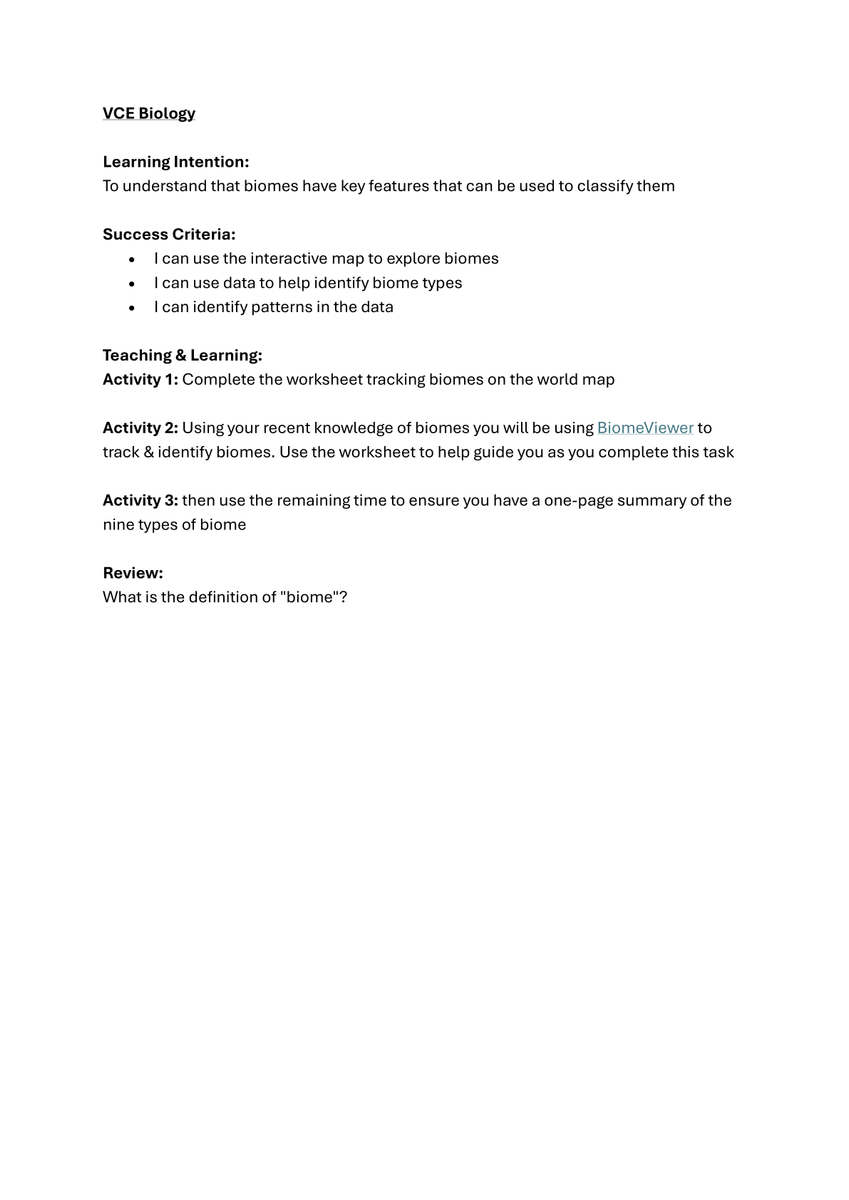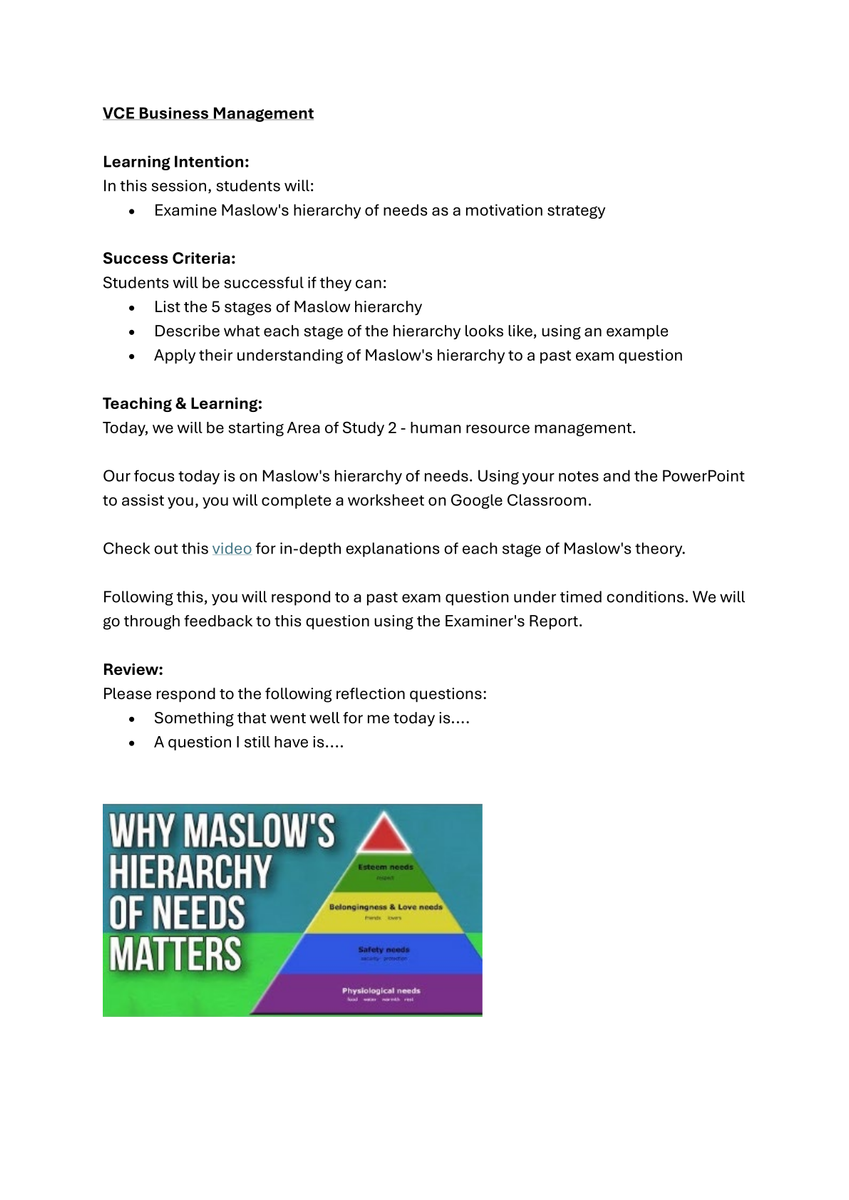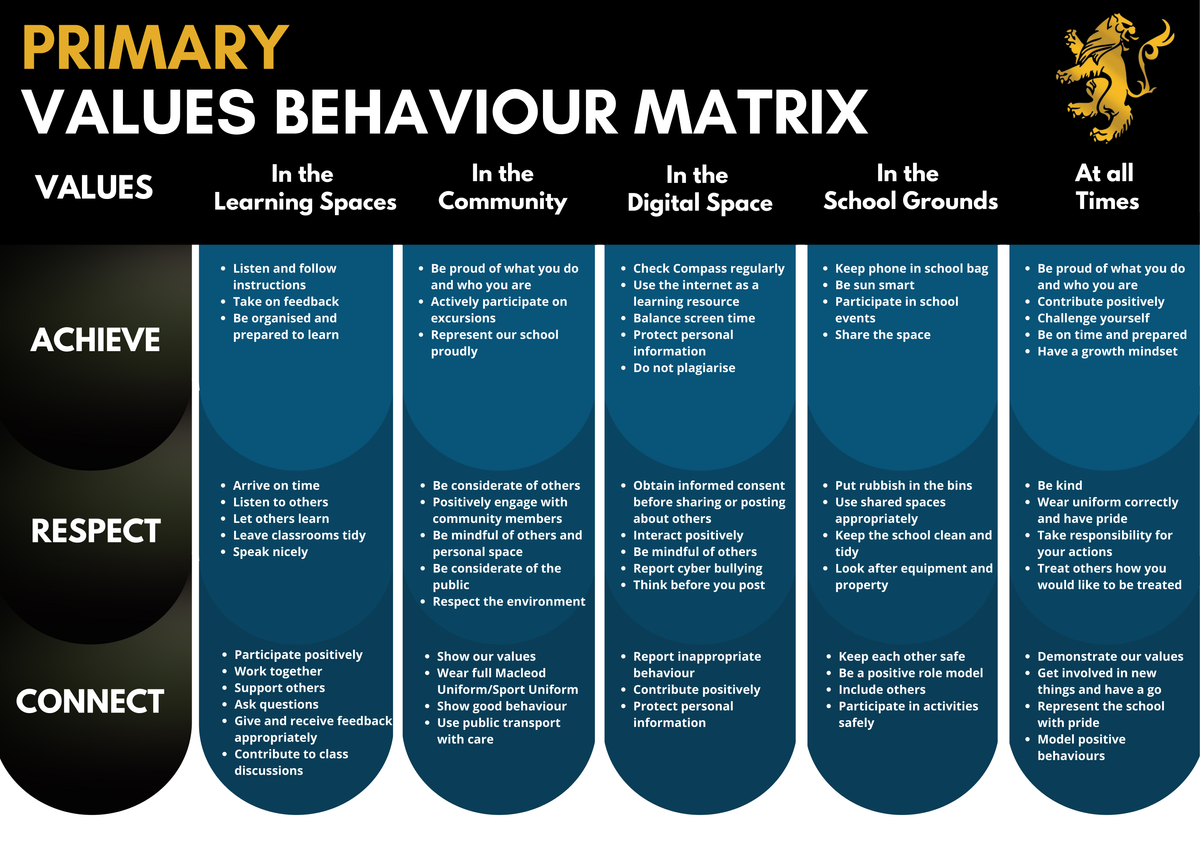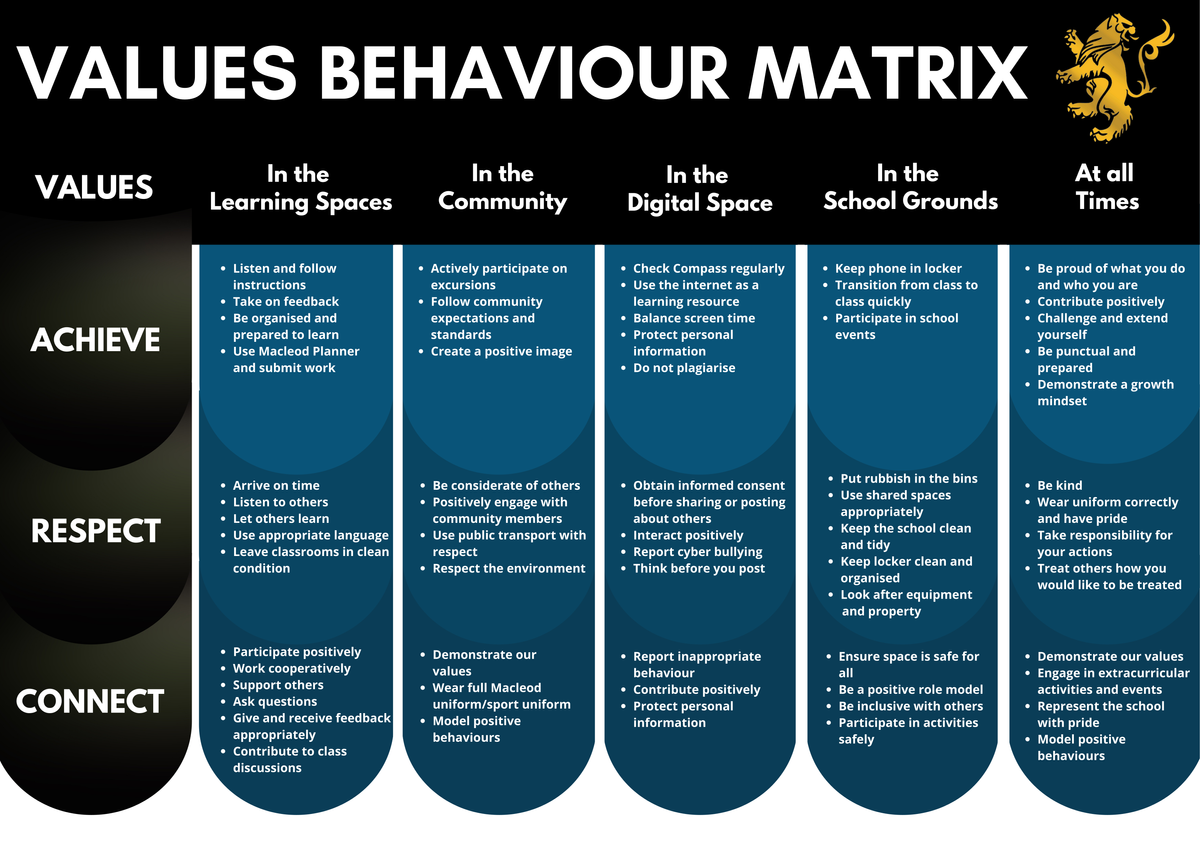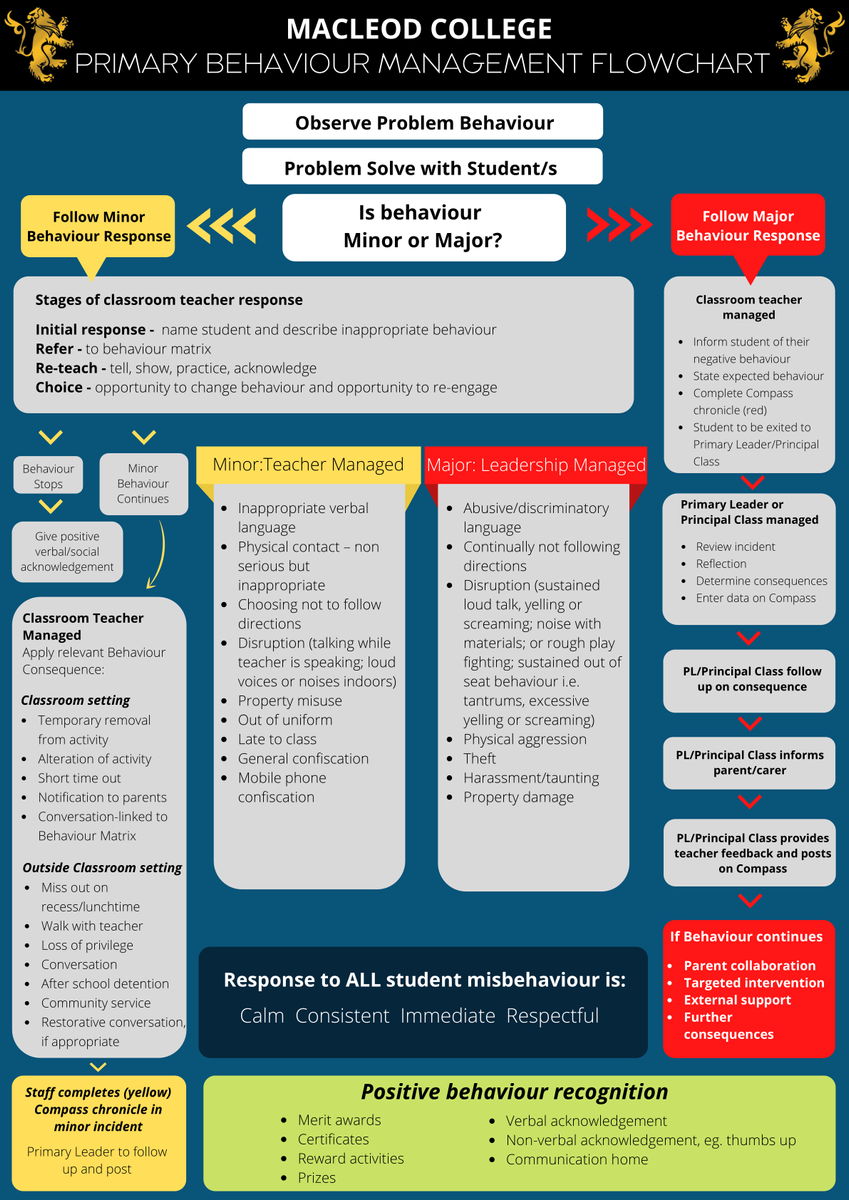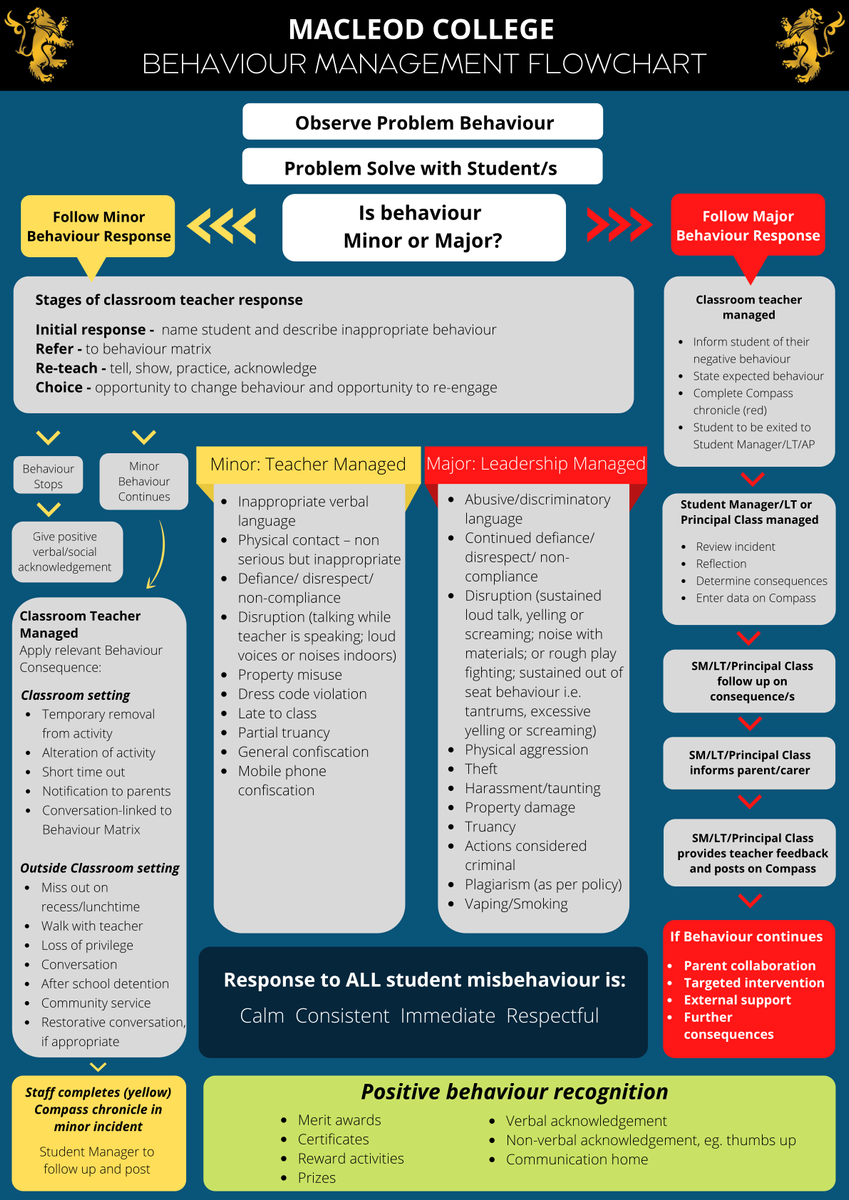2. Day to Day
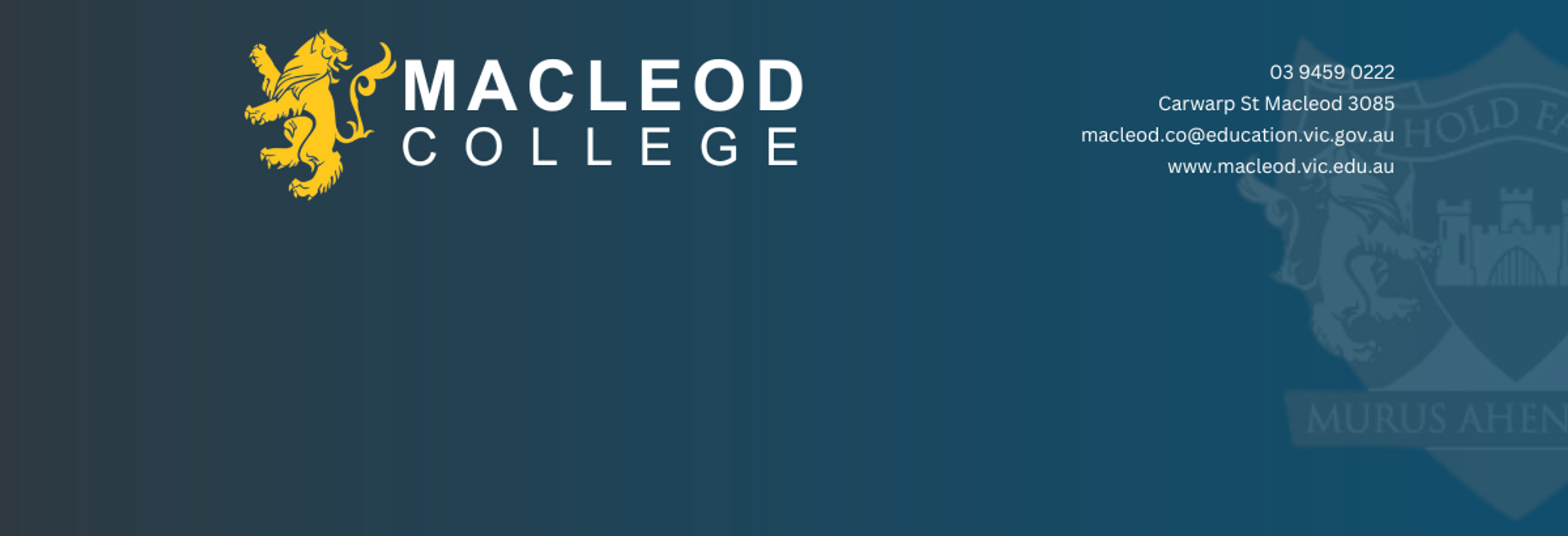
Working Hours
For placement, Pre-Service Teachers should aim to arrive at the school by 8:30 AM to allow time for lesson preparation or to discuss matters with your Mentor. You are welcome to arrive earlier if needed, as the school buildings open at 7:45 AM. Please inform your Mentor of your intended start time.
| Monday | 8:30AM - 4:30PM |
| Tuesday | 8:30AM - 3:45PM (4:30PM if scheduled for additional duty/meeting) |
| Wednesday | 8:30AM - 4:30PM |
| Thursday | 8:30AM - 4:30PM |
| Friday | 8:30AM - 3:30PM (8:30AM briefing in GBlock) |
Meeting Times
Meetings are scheduled on Mondays and Wednesdays, from 3:30PM - 4:30PM. Meeting Groups are on rotation, and include:
- KLA A: English, Maths, PE, Arts & Technology, P-6
- KLA B: Science, Humanities, Health, German, P-6, ISP, VCEVM
- Professional Learning (PL)
Professional Learning Communities (PLC)
*Key Learning Area (KLA)
Thursday 3:30 PM - 4:30 PM: Collegiate meeting time can be used if staff require additional time to meet with colleagues; otherwise, it is reserved for individual planning. Please discuss the use of this time with your Mentor.
Friday 8:30 AM: Staff briefing is held in G Block, where achievements, news, and general business are shared.
If you are unable to attend a meeting, please discuss this with your Mentor.
School Bell Times
Normal Day (60 minute periods) | Early Finish (50 minute periods) (Last day of Terms 1, 2 & 3) | |
| Warning Bell | 8:50 | 8:50 |
| Home Group (P-Y9) | 8:54 – 9:00 | 8:54 – 9:00 |
| Period 1 | 9:00 – 10:00 | 9:00 – 9:50 |
| Period 2 | 10:00 – 11:00 | 9:50 – 10:40 |
| Recess | 11:00 – 11:20 | 10:40 11:00 |
| Period 3 | 11:20 – 12:20 | 11:00 – 11:50 |
| Period 4 | 12:20 – 1:20 | 11:50 – 12:40 |
| Lunch | 1:20 – 2:10 | 12:40 – 1:30 |
| Period 5 | 2:10 – 3:10 | 1:30 – 2:20 |
| Dismissal | 3:10 | 2:20 |
Observations/Teaching
You should have organised your observations with the relevant teachers 24 hours before the scheduled class. We encourage you to observe other teachers and classes to gain diverse perspectives on teaching styles, classroom management techniques, and student engagement strategies, enriching your own practice. Please do not stop teachers on their way to class and ask if you can observe their lesson. You can arrange this with the PST Coordinator and/or your Mentor.
During your observations, consider:
- Classroom Management: Observe how the teacher handles classroom routines, transitions, and student behaviour. Take note of effective strategies for maintaining a productive and respectful learning environment.
- Student Engagement: Pay attention to how the teacher motivates and engages students. Watch for techniques that encourage participation and keep students focused on the lesson.
- Lesson Structure: Consider the flow of the lesson, how the teacher introduces and explains concepts, and the pacing. Observe how the teacher adjusts the lesson to suit student needs and keeps the class on track.
- Teacher-Student Interactions: Focus on how the teacher communicates with students, provides feedback, and fosters positive relationships. Notice how the teacher builds rapport and responds to student questions or concerns.
- Active Reflection: Use this time to reflect on what you see and how it applies to your teaching. Think about what strategies you would like to adopt, and how you can implement them in your own practice.
If you are also teaching during your placement, ensure you:
- Come prepared with a solid understanding of the subject area/unit you are teaching
- Be prepared to engage in further learning in areas where you may need a refresher or feel uncertain
- Prepare your lesson plan well in advance, allowing ample time for review and discussion with your Mentor before you teach the class
- Attach your lesson plan to the relevant classes on COMPASS
- Organise and prepare any equipment or materials needed for the lesson ahead of time, which may include:
photocopies
projector/device connections
white board markers
other materials
- Are on time for all your classes
- Do not dismiss the students or leave before the bell has gone for the end of the lesson
- Do not use your mobile phone in class
- Organise with your mentor a convenient time to review your lessons
- Use planning time to plan, review, observe, and complete teaching related responsibilities.
Please refrain from working on your university assessments or assignments during placement hours. We understand the importance of meeting your course requirements, but we appreciate your focus on making the most of your placement experience while you are here.
Teaching & Learning
Instructional Model
At Macleod College, we follow an instructional model that is designed to be accessible and clear for students, parents/guardians, and fellow teachers including Casual Relief Teachers. Our lesson plans prioritise differentiation, ensuring that all students, regardless of their learning needs, can access and engage with the content. The plans include explicit instructions that guide students not only during the lesson but also provide them with resources they can refer back to or use in case of absence. This model emphasises the use of clear, consistent language throughout the lesson plan, supporting effective teaching and learning. By incorporating these strategies, we aim to create an environment where students can work independently, take ownership of their learning, and access support when needed.
Lesson Plans
Your University or institution may require you to use a specific lesson plan template for your lessons. However, when uploading your lesson plan to COMPASS, we ask that you use the Macleod College format for consistency across the school. You can simply copy and paste sections from your University-based lesson plan into the Macleod College format and adjust as needed. This way, you can still meet the requirements set by your institution while aligning with our school’s expectations. You can see examples of our lesson plans below.
Assessment & Reporting
All reports to parents are generated using the COMPASS management system. Before each reporting period, staff are provided with guidelines for report writing and the timeline for completion. It is essential to adhere to this timeline. Classroom teachers must also maintain a thorough record of student achievements, areas for improvement, and strategies for progress.
You should familiarise yourself with the assessment requirements for the classes you are teaching.
The reporting system follows this schedule:
- Term 1, Week 8: Progress Report (Learning Behaviours)
- Term 2, Week 6: Progress Report (Learning Behaviours)
- Term 3, Week 2: End of Semester 1 Report
- Term 3, Week 8: Progress Report (Learning Behaviours)
- Term 4, Week 6: Progress Report (Learning Behaviours)
- Term 4, Week 11: End of Semester 2 Report
This results in six (6) reporting sessions each year. All reports are accessible through COMPASS, where parents can view them using their individual login and password.
School-wide Positive Behaviour Support
School-wide Positive Behaviour Support (SWPBS) is a framework that brings together school communities to develop positive, safe, supportive learning cultures. SWPBS assists schools to improve social, emotional, behavioural and academic outcomes for children and young people.
Macleod College has collaboratively developed its College Values - Achieve, Respect, Connect - in partnership with staff, students, and families to support the School-Wide Positive Behaviour Support (SWPBS) framework and foster a positive, connected community. These values, alongside the Values Behaviour Matrix, clearly outline expectations for behaviour at school. This ensures that staff, students, and families are aligned in understanding and upholding the standards of conduct that contribute to a respectful and supportive learning environment.
Behaviour Management
Along with the School-Wide Positive Behaviour Support (SWPBS) framework, the Behaviour Management Flowchard provides a structured approach for staff to manage student behaviour while also fostering positive relationships and restoring connections when needed. It focuses not only on addressing inappropriate behaviour but also on reinforcing desired behaviours through consistent support and encouragement. Your Mentor will guide you in utilising this framework to effectively manage behaviour both inside and outside the classroom, ensuring a positive and supportive learning environment for all students.
When it comes to behaviour management, we encourage you to embrace the opportunity to develop your own strategies and confidently manage classroom behaviours. This is a valuable part of your learning experience, and handling situations independently will help you build essential skills. While your Mentor is there for support, we want you to take initiative and explore different approaches before seeking their intervention. Strategies may include setting clear expectations, using positive reinforcement, and respectfully de-escalating issues. Managing behaviours on your own not only helps you grow as a teacher but also gives you the chance to refine your style. Remember, each challenge is an opportunity to learn, and your Mentor will be there to guide you as you reflect and adjust along the way.
Review, Feedback & Reflection
As a Pre-Service Teacher, reviewing your lessons, receiving feedback, and reflecting on your teaching practice are essential components of your professional growth. After each lesson or day, take the time to evaluate what went well, what challenges you encountered, and how you might improve in the future. Sitting down with your Mentor to discuss your performance is crucial, as their insights and guidance can help you refine your approach and strengthen your teaching skills. While your Mentor’s way is a starting point, we encourage you to take their feedback on board and actively discuss new or innovative ways to improve. Your Mentor's advice is given with the goal of helping you succeed, and engaging in these conversations will support your development and growth as a teacher.
Mid-Placement & End-of-Placement Review
Engaging in regular feedback sessions, reviewing your lessons, and reflecting on your teaching practice with your Mentor will greatly benefit you when it comes to your mid-placement and end-of-placement reviews. By taking on constructive feedback and discussing new approaches, you'll continuously improve your teaching skills and demonstrate growth throughout your placement. This ongoing process of reflection, collaboration, and improvement will provide a strong foundation for your reviews, highlighting your progress and commitment to becoming an effective educator.
Please make time with your Mentor to complete your Mid and End-of-Placement Reviews that are required by your institution.
If your Mentor is abent
If your Mentor is unexpectedly absent, we encourage you to take initiative in planning your day. Use this time productively by arranging to observe other teachers, exploring different year levels or subject areas, and gathering ideas, evidence or data to support your teaching practice. Be sure to liaise with the PST Coordinator, who can provide guidance during this time. This is a valuable opportunity to broaden your experience and make the most of your placement.
Other
Printers/photocopiers
There are two printers/photocopiers available for staff use located in the main staff room. You can also find printers/photocopiers in Senior School (D14), Primary, S Block (S5), G Block (G5) and the Library. Each staff member is allocated PaperCut account, linked to a coded card and/or number that provides access to these printers/photocopiers. You can also print directly from your laptop.
Supplies
While we may be able to provide some items, we cannot purchase items that are not budgeted for or needed on short notice. We do not expect you to go out of your way or incur significant costs to deliver your lessons. Please be sure to discuss any needs with your Mentor so we can best support you in your teaching.
